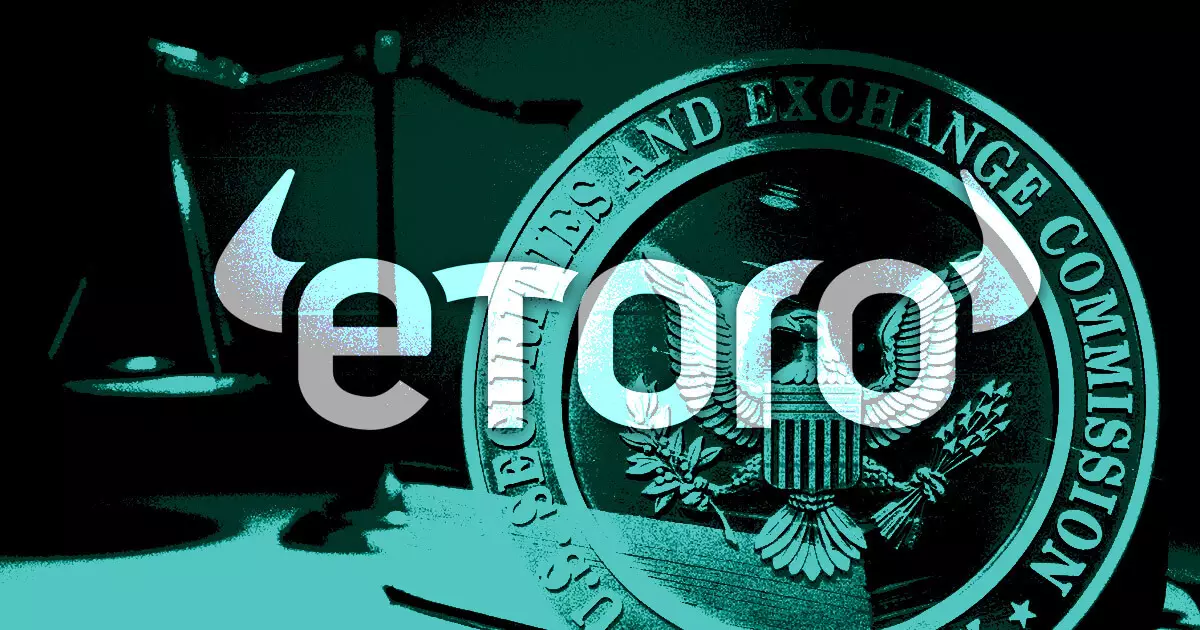In a significant move within the cryptocurrency trading landscape, eToro has announced a cease in trading for most digital assets on its platform, following a settlement of $1.5 million with the US Securities and Exchange Commission (SEC) on September 12. This decision marks a turning point for the platform, which has faced scrutiny for allowing its US clients to trade crypto assets classified as securities without the proper compliance in federal registration. The SEC investigation traced these regulatory discrepancies back to actions taken since 2020, highlighting the complexities and evolving nature of crypto regulations in the United States.
While eToro did not directly concede to the SEC’s allegations, its compliance-focused shift is evident in its agreement to limit its crypto offerings to a select few assets, such as Bitcoin, Bitcoin Cash, and Ethereum. Gurbir S. Grewal, the Director of Enforcement at the SEC, articulated the importance of this settlement as a vital step towards ensuring compliance with existing regulatory frameworks. Grewal emphasized that eToro’s decision to remove certain tokens from its trading platform not only meets regulatory demands but also enhances protections for investors. This moment underscores a critical learning curve for many cryptocurrency platforms that will have to re-evaluate their operations to align with regulatory expectations.
The SEC’s ongoing crackdown on crypto-related firms is indicative of a larger regulatory trend. Firms like Binance, Kraken, and Coinbase are all facing regulatory challenges, with scrutiny extending towards entities like Robinhood and NFT marketplace OpenSea, which received Wells Notices, signaling potential legal action to come. This widening scope of enforcement actions signifies the SEC’s determined approach to establishing clarity and accountability within the cryptocurrency sector. As the regulatory framework continues to tighten, platforms must prepare for operational changes in order to avert significant penalties.
eToro’s co-founder and CEO, Yoni Assia, expressed optimism in the wake of the settlement, framing it as an opportunity for the company to pivot and innovate within the confines of legal compliance. By prioritizing adherence to regulations, Assia asserts that the company can look to build upon existing strengths while pursuing new ventures within both the U.S. and international markets. He pointed to the establishment of clearer regulatory frameworks in the UK and Europe, hinting at a hopeful outlook that similar measures will soon manifest in the U.S.
For current eToro users, the impact of this regulatory shift is twofold. Users are now faced with the option to either close their crypto positions or transfer supported coins to their eToro wallet by March 11, 2025. Any unsupported or remaining crypto positions not transitioned by March 18 will be liquidated, and the proceeds credited back to users’ accounts. This logistical process demonstrates the practical implications of salting regulatory compliance into operational procedures, highlighting the instructive role that both users and platforms play in navigating this transformative period.
The changes at eToro reflect a significant and necessary adaptation to an increasingly regulated environment for digital assets. It underscores the importance of compliance for maintaining operational integrity, investor protection, and the future scope of cryptocurrency trading in the U.S. market.

